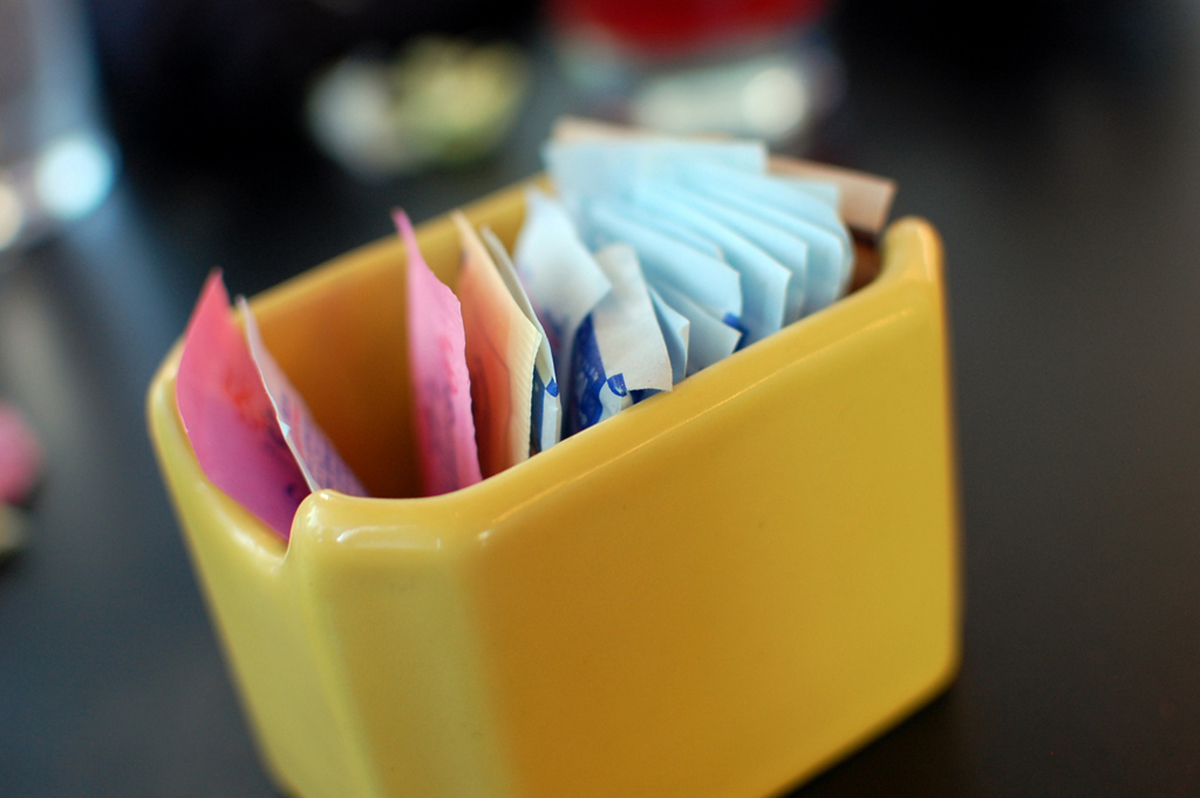Table of Contents
What's up with Sugar Alcohols?
Sugar alcohols can be identified by the "ol" at the end (xylitol, sorbitol, glycerol). Less sweet than sugar, they have fewer calories and may provide a healthier alternative to sucrose (table sugar).
However, it's worth noting that many of these sugar alcohols (such as maltitol, sorbitol, and xylitol) can cause gastrointestinal symptoms, such as bloating, gas, diarrhoea, and anal irritation. This isn't usually noted in small doses, but if you find yourself eating larger amounts, you will experience these problems.
One 21-year-old woman was hospitalised after suffering severe abdominal cramping, unexplained weight loss and diarrhoea for eight months. It turned out she'd consumed 18-20 grams of sorbitol a day in sugar-free chewing gum. When she quit sorbitol, her she regained a healthy amount of weight, and her abdominal symptoms went away within a few months.

If you're a pet owner, it's also worth noting that xylitol is toxic to dogs. Don't give them any xylitol containing product.
What is Stevia?
Stevia is a novel sweetener. It's a highly sweet herb derived from the leaf of the South American stevia plant. Pure stevia powder can be bought, and added as a sweetener to many products, including homemade cakes and coffee.
Most Stevia, however, is not completely natural. Forms such as Truvia are highly-refined and offer little to no benefit over other forms of artificial sweetener. Additionally, they can also cause side effects such as nausea and an uncomfortable feeling of fullness.
The FDA has not approved whole-leaf stevia, however. There is some concern about the effects of long-term consumption on blood sugar control, the reproductive system, the kidneys, and the cardiovascular system.
Natural Sweeteners: Pros and Cons
Although natural sweeteners such as agave nectar and molasses may look very different to sucrose (table sugar), nutritionally and chemically, they're pretty similar. Sugar and honey (favoured as a healthy alternative by many "natural-eating" bloggers) are nutritionally very similar and are both converted into glucose and fructose by your body. Many natural sweeteners can be very tasty and add a whole new dimension of taste to your recipes, but they're not healthier.
If you don't use these natural sweeteners as sparingly as sugar you will face exactly the same problems as the sugar addict: tooth decay, obesity, and increased triglycerides (levels of fat). As Professor of Nutrition, Rachel Johnson, says, "A calorie of sugar is a calorie of sugar".
However, it is noted that some of these alternatives are sweeter, so you may need a little less of them to achieve the same sweet taste of sucrose.
What about sugar?
There's no doubt that we should watch our sugar intake. Current recommendations state that we should only have 9 teaspoons of sugar, around 130 calories, a day (6 teaspoons, around 100 calories, for women). That's only 63 teaspoons a week (42 for women), instead of our current 238 teaspoons a week. But is it really worth changing sugar for a variety of unnatural sweeteners?
Dr. David Katz of Yale University says, "We need sugar; it's our body's preferred fuel." However, as Dr. Katz concedes, we currently eat far too much of it.
Professor of Nutrition Rachel Johnson recommends that we reduce our sugar intake, saying that the excess sugar "either adds calories to your diet or displaces other nutritious foods". However, Johnson says that not all sugar has to be controlled; she says: "There's no need to avoid the naturally-occurring sugars in fruit, vegetables, and low- and no-fat dairy".
Crucially, however, it is not recommended that you eliminate sugar from your diet and replace it with alternatives. Paediatrics professor, Rae-Ellen Kavey MD, says: "The focus should be on a healthful approach, not people rushing to one side or the other".
READ Sugar Substitutes: A Guide to Artificial Sweeteners
But is sugar addictive? The jury's out. Some animal studies suggest that eating sugar may cause a rise of dopamine in the brain. However, there's been no proven effect in humans.
That's all very well. But, what should I do?
At the end of the day, a lot depends on your own health. Diabetics, for example, may need artificial sweeteners to prevent peaks and troughs of blood glucose levels throughout the day.
However, if we want to control our weight and be fitter, the rest of us may benefit from cutting down on the excess sugar (whether we choose to consume it as sucrose, honey, agave nectar, or molasses) to the recommended limit. That way, we can continue to enjoy sugar as part of a balanced diet.
Just remember, as important as sugar is for our energy levels, a little goes a very long way.
- articles.mercola.com/sites/articles/archive/2013/10/07/sugar-substitutes.aspx
- edition.cnn.com/2012/10/30/health/sugar-bad/
- www.health.com/health/gallery/0,,20424821_2,00.html
- www.mayoclinic.org/healthy-lifestyle/nutrition-and-healthy-eating/in-depth/artificial-sweeteners/art-20046936
- www.mayoclinic.org/healthy-lifestyle/nutrition-and-healthy-eating/expert-answers/stevia/faq-20057856
- www.theguardian.com/society/2014/may/29/uk-western-europe-obesity-study
- stateofobesity.org/rates/
- www.telegraph.co.uk/foodanddrink/healthyeating/9987825/Sweet-poison-why-sugar-is-ruining-our-health.html
- www.sweetpoison.com/aspartame-side-effects.html
- www.webmd.com/food-recipes/are-artificial-sweeteners-safe
- www.webmd.com/vitamins-supplements/ingredientmono-996-xylitol.aspx?activeingredientid=996
- www.webmd.com/drugs/2/drug-10305/sorbitol/details#side-effects
- www.webmd.com/diet/20080110/sweetener-side-effects-case-histories
- www.webmd.com/food-recipes/health-effects-of-sugar?page=3
- Photo courtesy of v1ctor: www.flickr.com/photos/v1ctor/10871254373/
- Photo courtesy of stevensnodgrass: www.flickr.com/photos/stevensnodgrass/5608101779/
- Photo courtesy of stevensnodgrass: www.flickr.com/photos/stevensnodgrass/5608101779/

